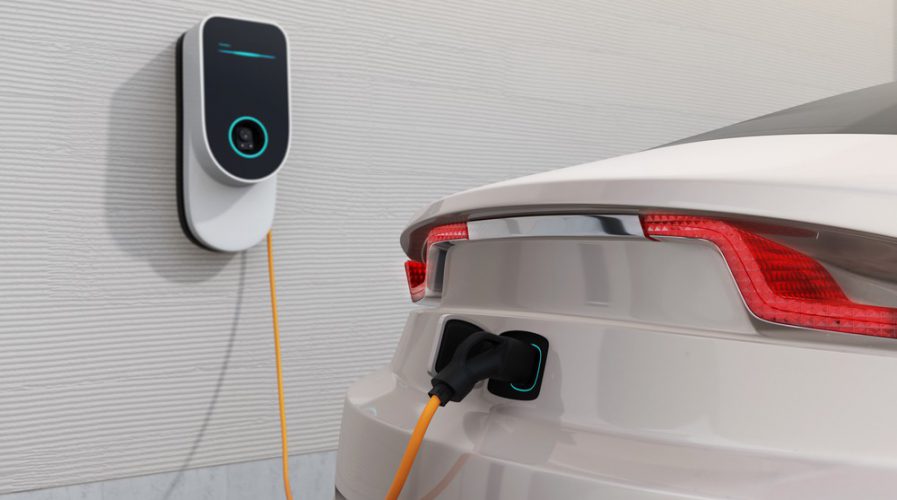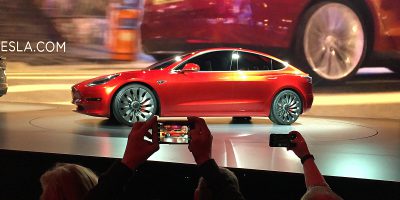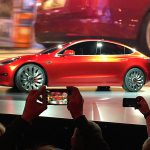
How will the electric cars market fare in 2021? Source: Shutterstock
Solid-state batteries could speed up the roll-out of EVs, AVs
- The solid-state battery is a potential game-changer for EVs, promising low cost, high performance, and high safety
- So far, Ford, BMW, Toyota, and Solid Power have claimed that the technology that would give us lower-priced EVs with more range and faster charging times, is just around the corner
We are currently in the phase where the most automaker is betting that electric vehicles (EVs) will be the future, with some of the largest countries and largest auto markets in the world moving to phase out gas-powered cars and trucks. Of course, to ensure that shift, batteries need to more powerful, last longer, and be cheaper for the switch to battery-powered vehicles to be more enticing.
Perhaps with a battery that allows you to drive your EVs over 300 miles on one charge and completely recharge in just ten minutes? Well, Ford, BMW, Toyota, and Solid Power are on the track of coming up with solid-state battery technologies around the corner.
To put things in perspective, most EV companies use “wet” lithium-ion batteries, which use liquid electrolytes to move energy around. But these batteries can be slow to charge, can freeze up in subzero temperatures, and contain flammable material that can be hazardous in the event of a crash.
Solid Power and Toyota believes that having solid-state batteries in general production is not far away. This would mean that lighter, less expensive electric cars with more range and shorter charging times are on the horizon.
To put it simply, solid-state batteries are not only much quicker to charge, but reports claimes that they could minimize the risks of fires compared to conventional lithium-ion batteries. They could also occupy far less physical space. That being said, the race to achieve huge improvements in battery technology is one of the most expensive and hotly contested right now.
Ford and BMW
Over the past several years, both Ford and BMW have invested in Colorado-based Solid Power. In a recent press release dated Dec 10, the company said it is producing 20 amp-hour (Ah) multi-layer solid-state lithium metal batteries. The 330 Wh/kg, 22-layer cells have higher energy density than any commercially available lithium-ion battery manufactured today according to the company. It says it expects its batteries to exceed 400 Wh/kg by 2022.
Bloomberg recently reported that Solid Power said it’s on track to begin testing solid-state batteries for automotive production in early 2022, a signal it eventually could help established car companies compete with Tesla Inc. The startup began making battery cells on a pilot line in its Colorado facility during the second quarter of this year.
The 20 Ah cells are currently being validated by Solid Power’s automotive partners, including Ford and BMW. Other investors in the company include Hyundai, Volta Energy, Solvay, and Samsung. To date, Solid Power has already shipped more than 400 prototype solid-state cells to external parties for independent performance validation.
“Assuming everything remains unchanged, and the OEMs continue to operate at the pace that they do, we could support vehicle start-of-production as soon as 2026, but more probable 2027,” CEO Doug Campbell told Bloomberg. In total, Solid Power is in discussions with eight automakers but won’t have a contract until the technology is further along. The timeline Campbell said could move up to 2025 if there’s “extensive cooperation” from a car company.
Toyota
Last week, Toyota announced that it is having success with its own solid-state battery program. According to Nikkei Asia, Toyota plans to be the first company to sell an electric vehicle equipped with a solid-state battery and will unveil a prototype next year.
Although the Nikkei Asia account extols the virtues of solid-state batteries, it provides no technical details about any battery under development by Toyota. It added that the EVs being developed by Toyota will have twice the range of a vehicle using a conventional lithium-ion battery under the same conditions without sacrificing interior space.
What is known though is that Toyota is said to have over 1,000 solid-state battery patents and has already convinced Mitsui Mining and Smelting Co. Ltd., to create a pilot facility to manufacture solid electrolytes for its batteries. The pilot plant should be able to provide enough electrolytes to begin manufacturing prototype batteries by next year. The Japanese government is said to be working to secure access to sufficient supplies of lithium for the country’s nascent electric car manufacturing sector.


